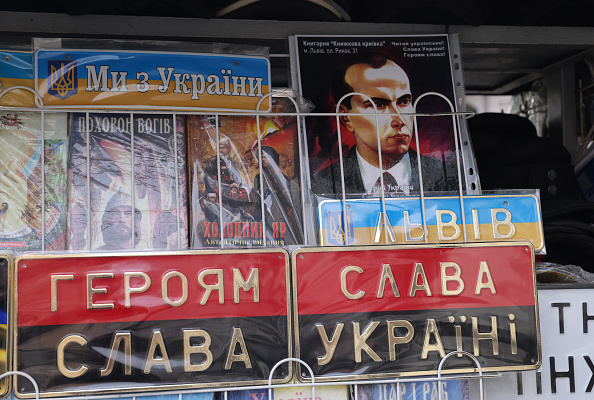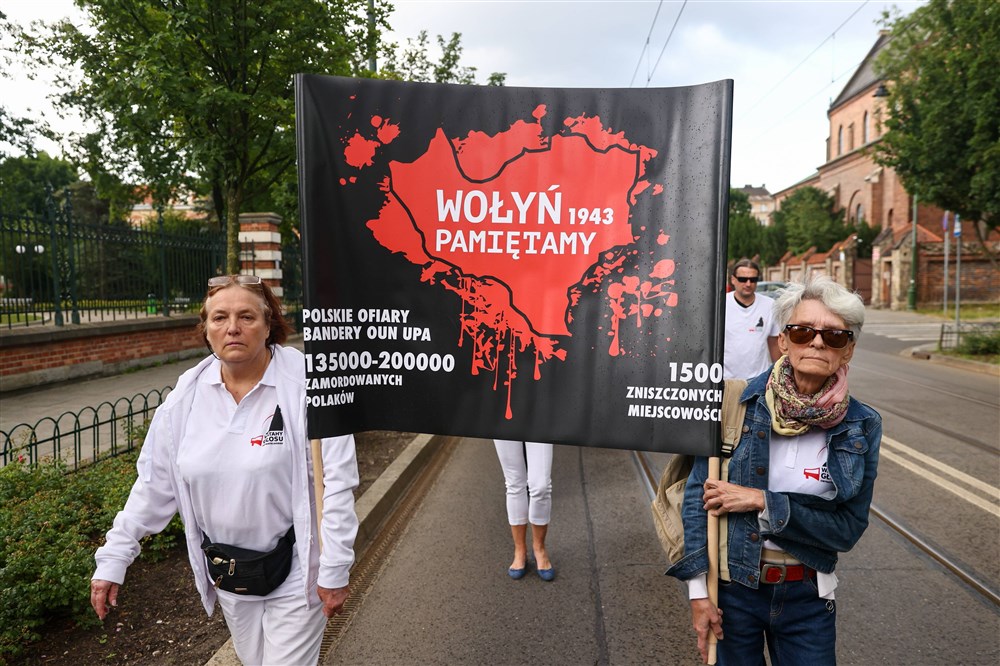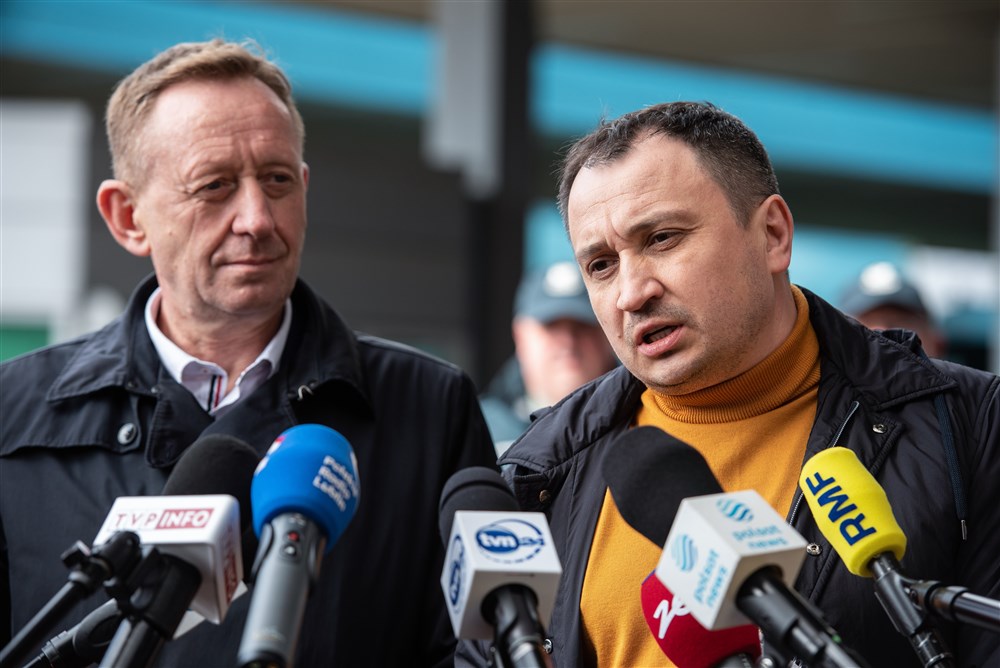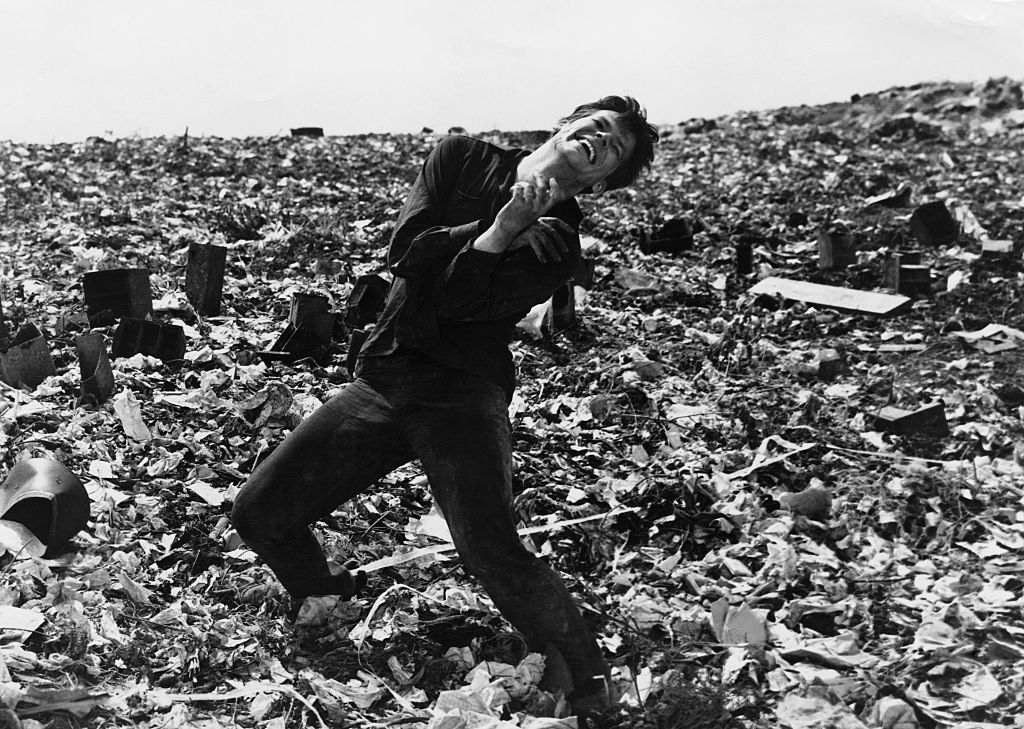Further signs of growing tension between Poland and Ukraine have emerged, this time over Ukrainian monuments in Poland.
Speaking to Ukrainian portal glavcom.ua, the head of the Ukrainian Institute of National Remembrance, Anton Drobovych, said until Poland renovates statues erected in memory of Ukrainian nationalist forces, Ukraine will not allow Poland to resume exhuming the remains of victims of the Second World War Volhynia massacres in Ukraine.
“We cannot give permission for new excavations and exhumations of Poles when Ukrainian graves and monuments are under threat,” he said.
Dobrovych’s remarks follow reports in the Polish media claiming Ukraine is increasingly aligning with Germany and France in its war with Russia. That is irritating Poland, which is a leading provider of military and humanitarian aid to Ukraine. Warsaw says Ukrainian diplomatic efforts have been concentrated on appealing to the Germans and French for assistance.
Observers say that may be due to the fact that, while Poland has supported Ukraine’s major policy goals of NATO and European Union membership, it will be the more sceptical Germany and France that will have more significant influence on those issues.
Recent events such as a row about Ukrainian grain imports show long-standing tensions between the two countries have not dissipated.
Asked about recent comments by Łukasz Jasina, the Polish Ministry of Foreign Affairs spokesman, calling for Ukraine President, Volodymyr Zelensky, to apologise for the Volhynia massacre, Drobovych praised reports Jasina had been removed from office. The Polish ministry denies he has been either suspended or dismissed, but that he is on ‘extended leave’.
The official Polish position is that relations with Ukraine remain good. But polls in the country suggest attitudes are changing, with Ukrainian migrants increasingly being seen as ‘too demanding’.
The spat over Volhynia led the former minister of foreign affairs and a senior MEP for the ruling PiS, Witold Waszczykowski, to state: “Ukraine will not be able to enter the EU with Bandera on their banners.”
The massacre in Volhynia was instigated by the anti-Soviet Ukrainian Liberation Army (UPA), the military wing of the nationalist movement led by Stepan Bandera. During the Second World War, his group allied itself with the Germans in order to secure freedom for Ukraine from the USSR and Poland. Tens of thousands of Poles were ethnically cleansed in what Poles consider to have been genocide.
Ukraine, since regaining its independence in 1991, has portrayed the UPA as freedom fighters. Poles were allowed to start exhumations in Volhynia but that was stopped after the Euromaidan revolution of 2014, a wave of demonstrations in Ukraine. The civil unrest was sparked by Kyiv’s decision not to sign the EU-Ukraine Association Agreement, instead choosing closer ties to Russia and the Eurasian Economic Union.
The administration led by Zelensky has made conciliatory noises on the Volhynia issue, promising Ukraine would welcome Polish experts to resume the exhumations once Ukrainian counterparts were freed from war-related duties.
However, now it seems Ukraine has had a change of heart. Drobovych alleges that Poland is failing to honour its international agreements and that the barrier to the exhumations of Volhynia victims lay in Polish “neglect” with regard to renovating UPA monuments and graves in south-eastern Poland.
This will raise eyebrows in Poland. Among monuments Ukrainians expect Poland to actively renovate is one that memorialises a man who led an attack on a train in which many Poles were massacred. In that incident it was German railwaymen who tried to protect them. It will likely prove hard for Poland to adhere Ukraine’s insistence on honouring the UPA.





